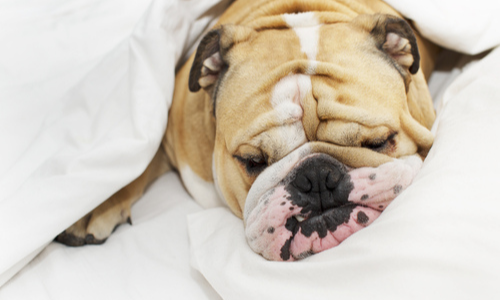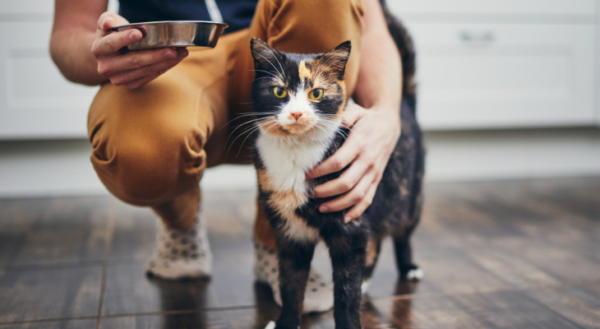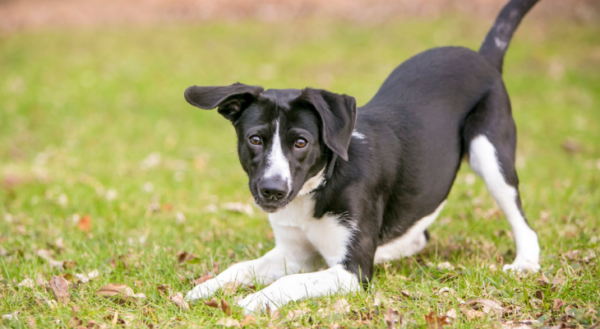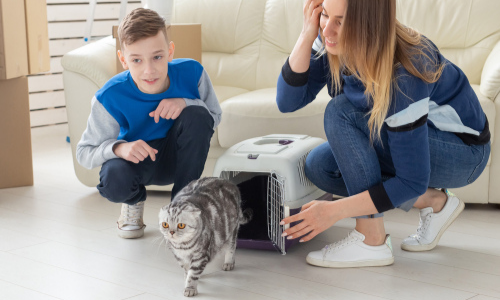Do You Know Why Your Dog Snores?
Does your dog treat you to a symphony of snoring every night? Although snoring is often harmless, it can be a sign of a health problem in some cases. Understanding the reasons your dog may snore can help you decide if it’s time to call your veterinarian.
What Happens When My Dog Snores?
Snoring occurs when tissues in your dog’s nose, mouth, or throat vibrate as air passes through them. The sound effects are more likely to happen if your pet’s airway narrows due to inflammation, an obstruction, congestion, or other issues.
What Causes Snoring in Dogs?
Snoring can occur for a variety of reasons, including:
- Upper Respiratory Infection: You’ve probably noticed that you are more likely to snore if you have a cold or upper respiratory infection. Nasal congestion clogs your sinuses, making it more difficult for air to flow freely through your nose. Your dog may also develop congestion and begin snoring as a result of a cold or illness.
- Obesity: Your dog doesn’t just gain weight around its mid-section. Weight gain can also cause excess tissues to form in your pet’s neck or throat. These tissues restrict airflow, making it more likely that your dog will snore.
- Allergies: Allergies could be to blame for your pet’s snoring. Allergens inflame the nasal passages, causing swelling that limits airflow.
- Sleep Position: Do you notice that your dog only snores when sleeping on its back? That sleeping position may cause the tongue to fall back against the throat, partially blocking the airway.
- Abscessed Tooth: The bacterial infection that causes a tooth abscess may be responsible for inflammation and swelling in nearby tissues.
- Hypothyroidism: Snoring could be a sign that your dog doesn’t produce enough thyroid hormone. Other signs of hypothyroidism (underactive thyroid) can include dull coat, flaky skin, lack of energy, cold intolerance, reduced appetite, weight gain, shedding, and skin and ear infections.
- Breed Characteristics: Dogs with short noses, like boxers, pugs, Boston terriers, English bulldogs, and Shih-Tzus are more likely to snore, according to the College of Veterinary Medicine, University of Illinois at Urbana-Champaign.
- Obstructions: Anything that prevents the free flow of the air, whether it’s a growth somewhere in your pet’s airway or an object stuck in its nose, can trigger snoring.
What Can Be Done About Snoring?
Stopping or reducing snoring can often be as simple as gently nudging your dog to roll over or helping your pet lose a little weight. (If your dog is overweight or obese, your veterinarian can help you create a weight loss plan that will help your pet shed those extra pounds safely.) If a cold or upper respiratory infection is the cause, snoring is likely to stop once your pet starts to feel better.
If there’s no obvious reason for your pet’s snoring or snoring started suddenly, your vet can help you determine the cause. Removing an abscessed tooth and treating the infection with antibiotics should relieve tooth-related snoring, while prescription medication will improve your pet’s health and reduce snoring caused by hypothyroidism.
When allergies are responsible, making a few changes to your pet’s environment can be helpful. Wiping your pet with a moist cloth after trips outside can reduce exposure to allergens, as can washing floors and bedding often. Air-conditioners and air filters will eliminate allergens in your pet’s environment, while a humidifier will keep your pet’s nasal passages moist. Your veterinarian may also recommend medicated shampoos or prescribe allergy medications.
Snoring isn’t necessarily a sign of trouble in dogs with short noses. If you have one of these breeds, it’s important to keep your pet’s weight under control and monitor your dog’s breathing if it gets a cold or upper respiratory illness. If snoring is an indication of a serious issue, your vet may recommend surgery to improve airflow.
Are you concerned about your dog’s snoring? Call our office to schedule an appointment.
Sources:
PetMD: Does Your Dog Have a Snoring Problem?, 3/24/17
College of Veterinary Medicine, University of Illinois at Urbana-Champaign: Why Does My Pet Snore?
Canine Journal: Dog Snoring: Is It Normal or a Cause for Concern?, 11/5/20



